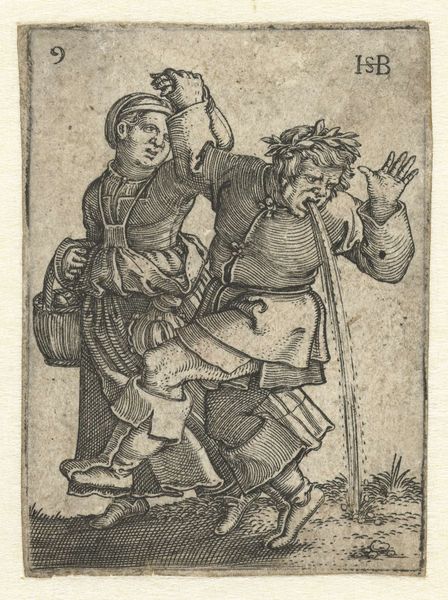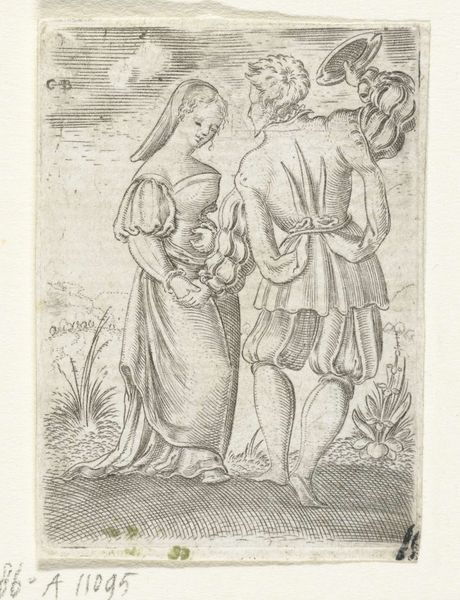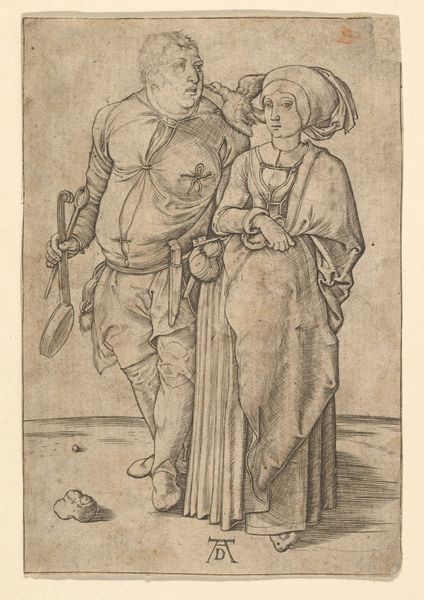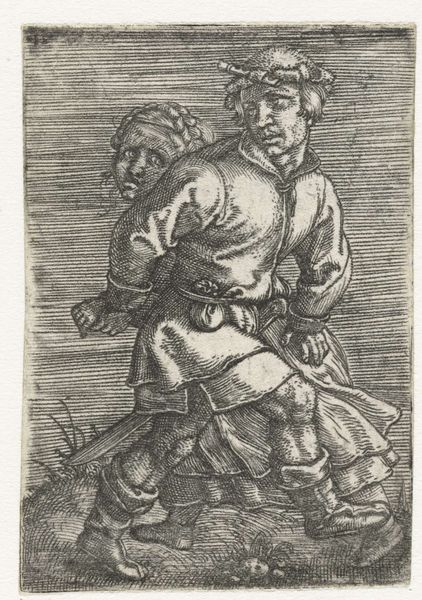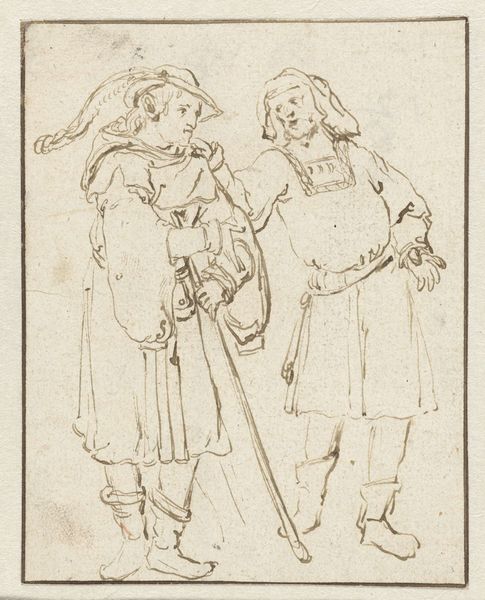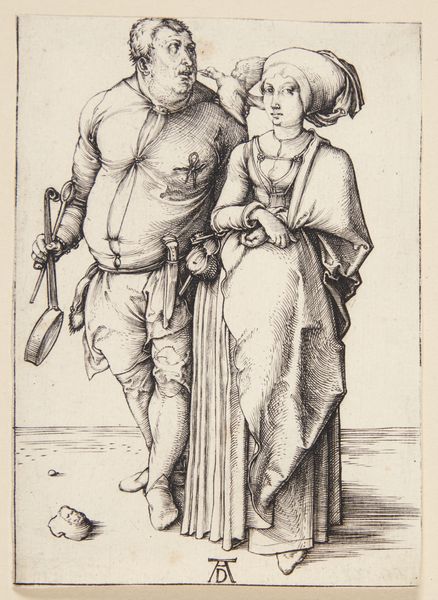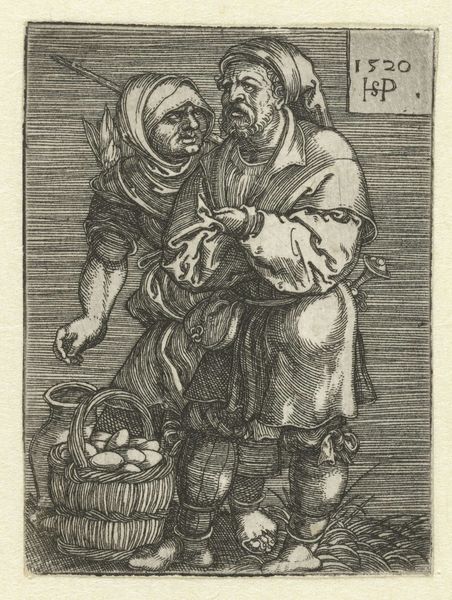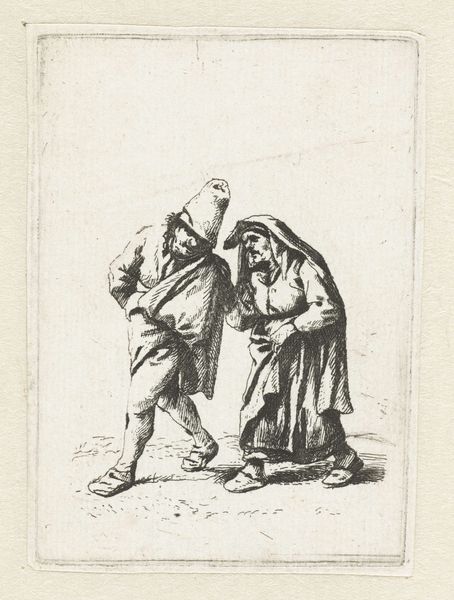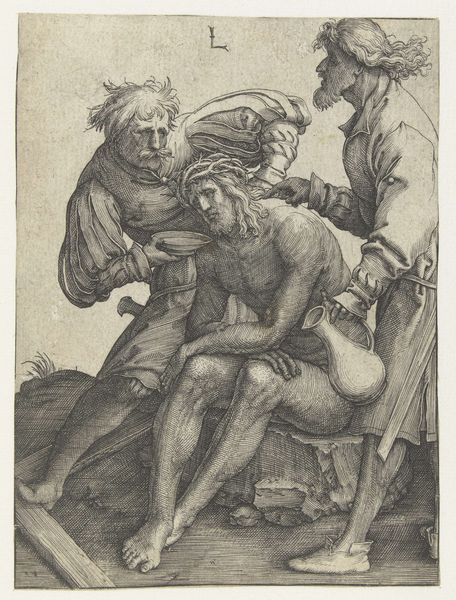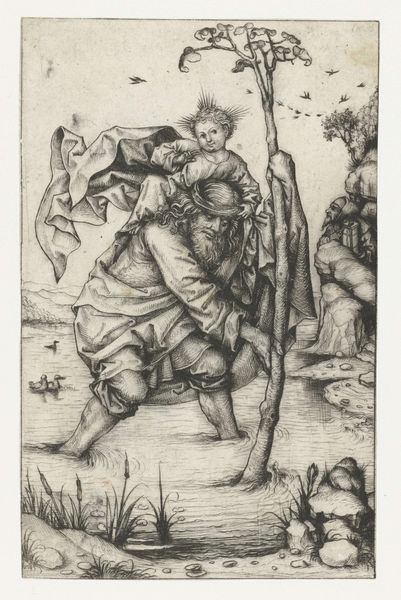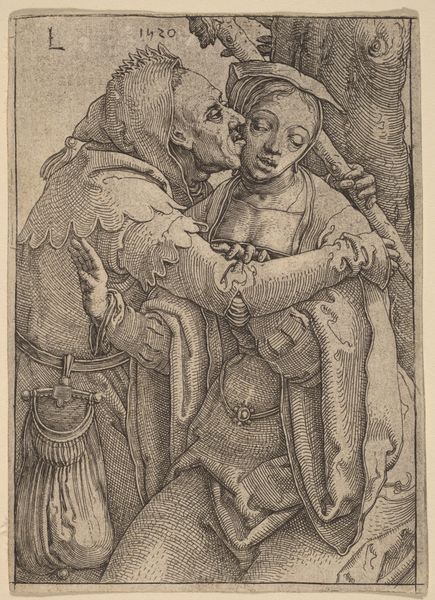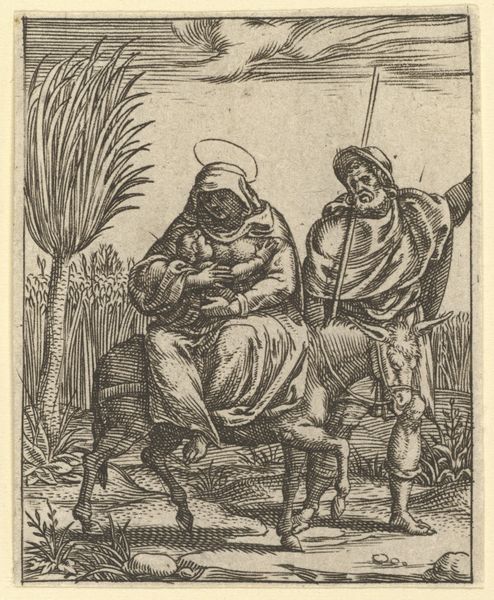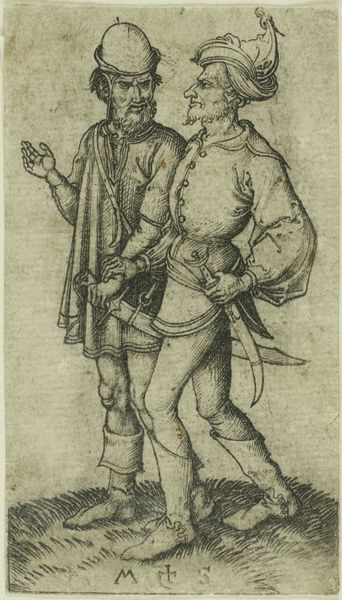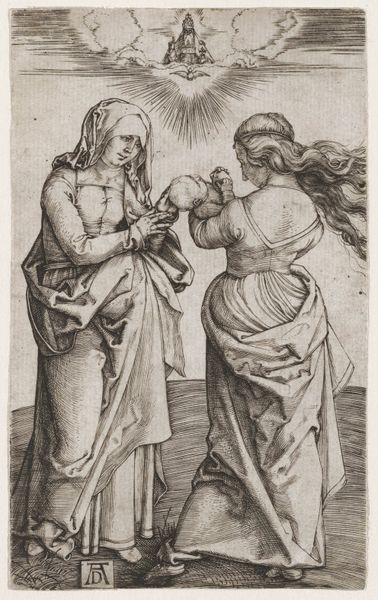
print, engraving
#
portrait
#
medieval
# print
#
figuration
#
genre-painting
#
northern-renaissance
#
engraving
Dimensions: height 79 mm, width 56 mm
Copyright: Rijks Museum: Open Domain
This print, by the artist known as the Master of the Amsterdam Cabinet, was made using drypoint—a technique that involves scratching directly into a copper plate with a sharp needle. Unlike engraving, drypoint doesn't remove any metal; instead, the needle throws up a burr of copper along the groove. That burr catches ink, resulting in a velvety line when printed. But the burr is delicate, and wears down quickly. This means that drypoint prints tend to be made in small editions, a limited run. Look closely, and you'll notice the relative simplicity of the design, with a minimum of background detail. Yet, there's a richness to the lines defining the faces and clothing of this working couple. By focusing on this pair, and evoking their hardscrabble existence, the artist drew attention to the realities of labor and the lives of those who worked the land. Drypoint, as seen here, provides an intimate window into a specific time, place, and social context, offering insights beyond the aesthetic surface.
Comments
No comments
Be the first to comment and join the conversation on the ultimate creative platform.
